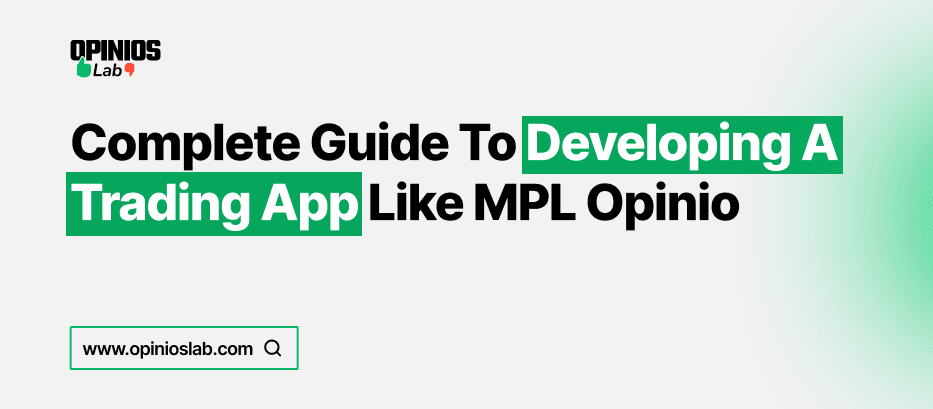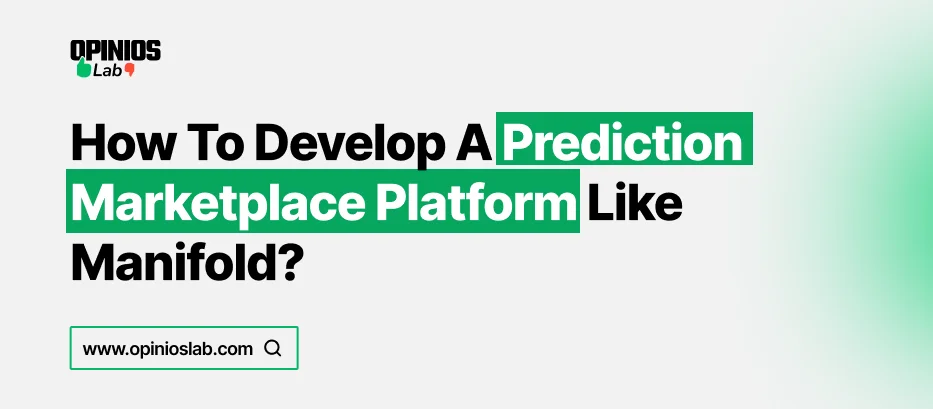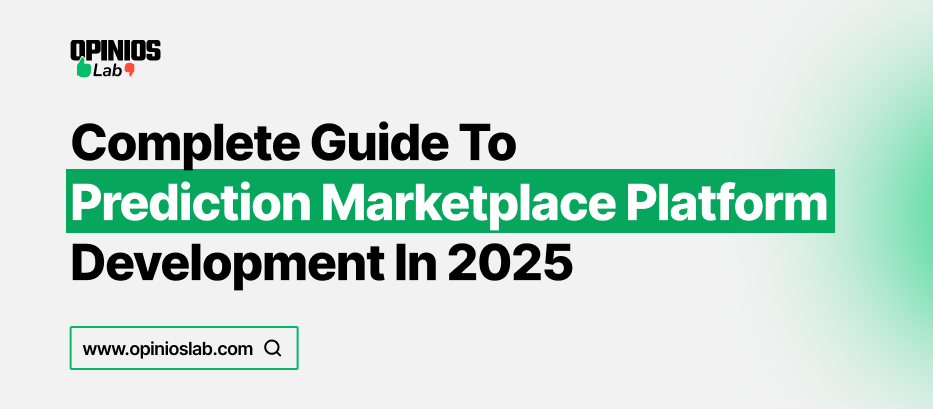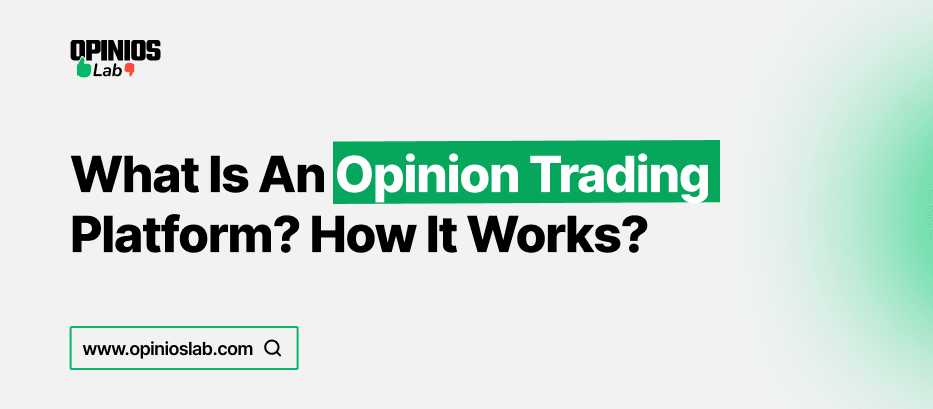Creating and running a prediction market is a fantastic business opportunity in 2026. These platforms offer a way to get a clearer picture of events and outcomes than you'd typically get from traditional polls. Think of them as active marketplaces where people can buy and sell contracts tied to the likelihood of specific events. This guide will walk you through on how to develop platform like PredictIt in 2026. We'll cover how these prediction markets function, how to keep users engaged, different ways to make money, and the critical development and operational aspects.
Opinios lab - Next-Gen Blogs

How to Develop Platform like Metaculus in 2026
Introduction Creating a prediction marketplace platform where people contribute forecasts to generate insights is a growing business opportunity. Platforms like Metaculus are valuable for anyone making decisions based on data, drawing on...
Current Trending Blogs
-

-

How to Develop App Like Probo in 2026
This guide outlines the key steps and considerations to Develop Platform like Probo, which operates as an opinion trading market in 2026. These kinds of platforms let people trade on predicted outcomes of real events, sort of like a stock market for insights.

Opinioslab
Content Team -

Complete Guide To Develop App Like MPL Opinio
Trading apps have surged in popularity, transforming how users interact with financial markets. Successful apps like MPL Opinio have capitalized on providing user-centric experiences to capture market interest. Focusing on intuitive design informed by market trends is vital. Thus, understanding the process of creating a successful trading app can enable developers and businesses to capture a rapidly expanding user base. This guide will help businesses build on How to Develop App Like MPL Opinio

Opinioslab
Content Team -

In Depth Guide to Develop Platform Like Manifold
With the growing trends, prediction markets have now evolved into powerful tools for crowd-sourced forecasting, decision-making, and gamified engagement. Some of the popular prediction marketplace platforms, like Manifold, have attracted users to create, trade, and predict using virtual currencies. However, this has inspired businesses to develop with similar platform like Manifold. This guide helps to understand in depth on how to develop a prediction marketplace like Manifold with all its essential steps and features to be integrated.


Opinioslab
Content Team -

Complete Guide to Prediction Marketplace Platform Development In 2025
Prediction marketplace platforms are becoming very popular for forecasting future events based on crowdsourced insights. Applications like Polymarket are gaining traction with their unique approach for predicting real-world outcomes. If you want to develop your own prediction market, get in touch with a prediction marketplace platform development company.

Opinioslab
Content Team -

What is an Opinion Trading Platform? How It Works?
Opinion trading platform and apps have become an exciting and rapidly growing segment of the online trading world. At their core, these platforms allow users to speculate and trade based on the predicted outcomes of real-world events, from election results to sports games and market fluctuations. With their intuitive interfaces, ease of entry, and engaging nature, opinion trading platforms have attracted a diverse crowd of casual users, financial enthusiasts, traders, and even those entirely new to investing. This comprehensive article aims to provide clarity about opinion trading apps, explain precisely how they work, highlight their advantages and potential challenges, and offer a practical, hands-on guide for beginners.

Opinioslab
Content Team
Start Creating Your Own Prediction Platform
Disclaimer
As per the Online Gaming Bill, 2025 and applicable Indian laws, we strictly do not develop, provide, or promote any Real Money Games (RMG), Real Money Features, RMG Development Services, or Game with RMG Features. While our website may mention terms like “Real Money Game” or “RMG Features” for general informational and educational purpose.